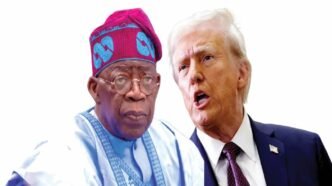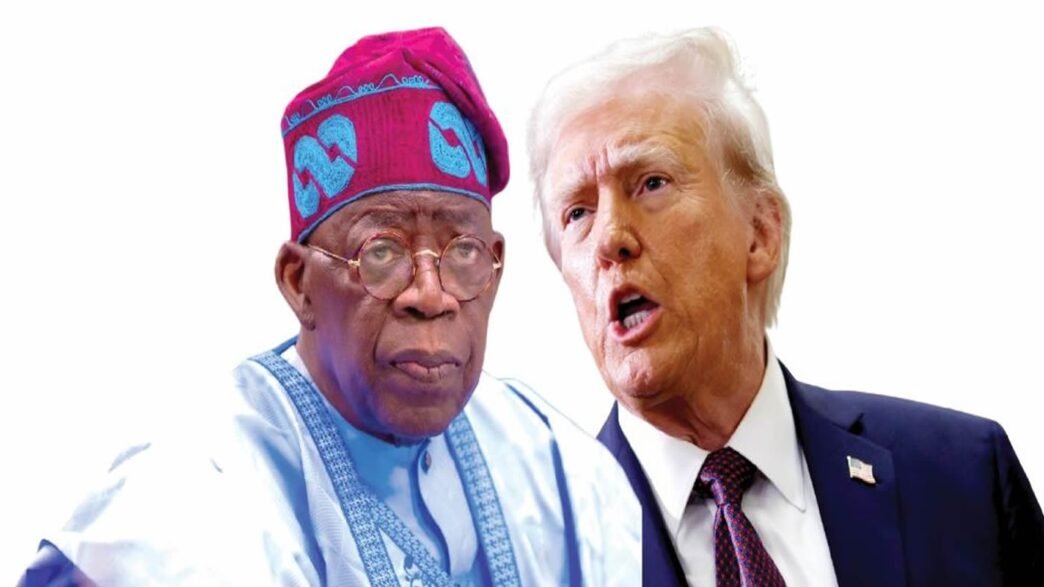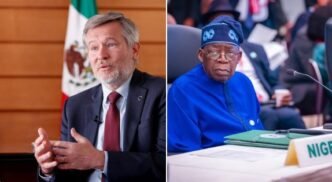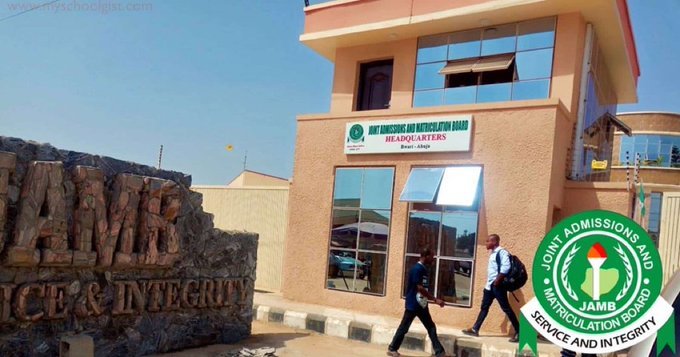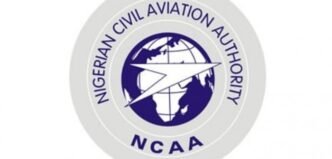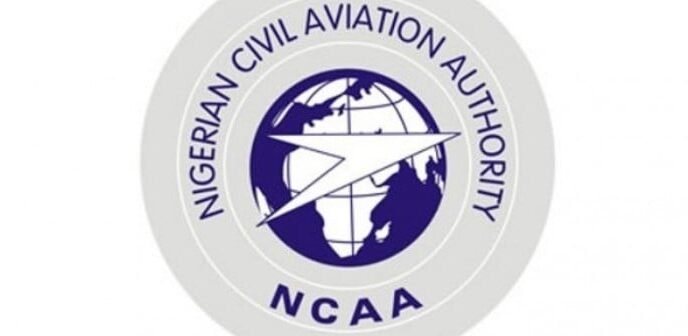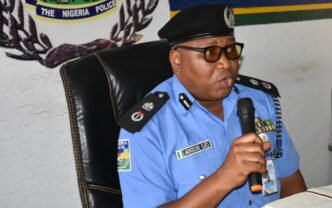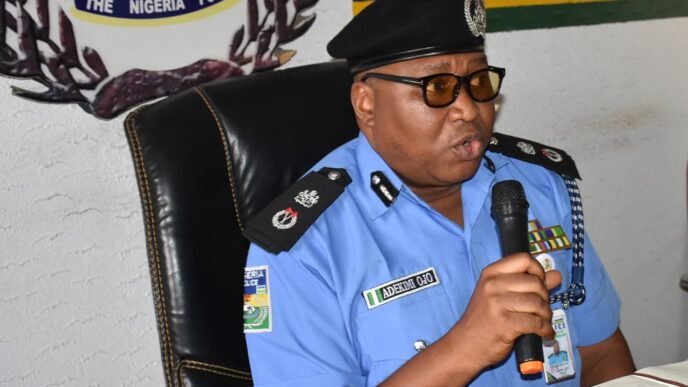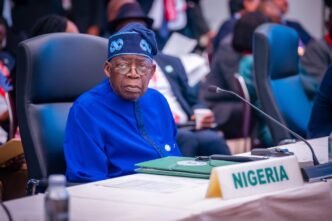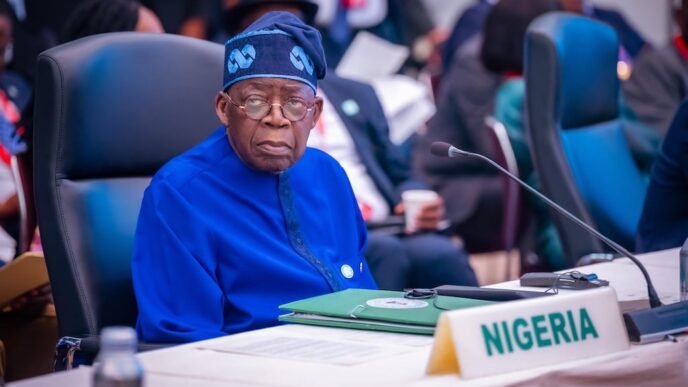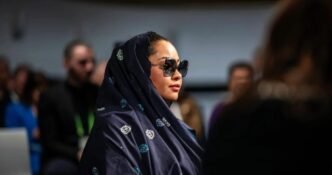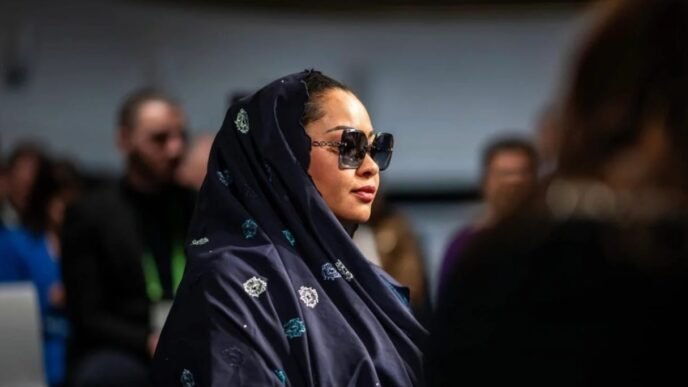November 2, 2025 | Abuja, Nigeria
The Presidency has confirmed that President Bola Ahmed Tinubu will meet with U.S. President Donald J. Trump in the coming days to address rising diplomatic tensions and allegations of a “Christian genocide” in Nigeria.
The planned meeting follows a week of intense international debate sparked by President Trump’s warning that the United States could take military action if Nigeria fails to stop the reported killings of Christians in parts of the country.
Tinubu’s upcoming talks with Trump, according to Nigerian officials, will focus on counterterrorism cooperation, religious tolerance, and correcting “misleading narratives” about Nigeria’s internal security crisis.
Presidency Confirms Planned Meeting
The confirmation came on Saturday through Daniel Bwala, the Special Adviser to the President on Policy Communication, who disclosed the development in a post on X (formerly Twitter).
Bwala said the meeting is part of efforts by President Tinubu to engage diplomatically with the United States and prevent misinformation from damaging Nigeria’s image on the global stage.
“Both President @officialABAT and President @realDonaldTrump have shared interests in the fight against insurgency and all forms of terrorism against humanity,” Bwala wrote.
He added that the discussions will “clarify misconceptions about the nature and context of terrorist attacks in Nigeria,” stressing that the violence in various parts of the country is not religiously motivated but driven by terrorism, banditry, and socio-economic factors.
Context: Trump’s Explosive Comments
President Trump’s recent remarks have triggered strong reactions across Africa and the international community. On Thursday, Trump publicly accused the Nigerian government of turning a blind eye to the “mass slaughter of Christians,” warning that the U.S. would “cut all aid” and could consider military options if the violence continues.
He also approved a 15% import duty on fuel and diesel to “pressure the Nigerian government to act decisively on human rights and religious freedom,” linking his decision to broader U.S. policy on countries designated as “of particular concern.”
Trump’s comments followed Washington’s formal classification of Nigeria as a “Country of Particular Concern (CPC)” under the International Religious Freedom Act, a designation that allows for sanctions or other punitive measures against nations accused of violating religious rights.
Nigeria’s Response: “We Reject the Genocide Narrative”
The Nigerian government immediately rejected Trump’s allegations, describing them as inaccurate and damaging.
In a statement earlier this week, Ajuri Ngelale, the Special Adviser to the President on Media and Publicity, insisted that Nigeria does not tolerate religious persecution and that the federal government protects all citizens regardless of faith.
“Nigeria is a secular state. Our constitution guarantees freedom of religion and association. The security challenges we face are complex — they include terrorism, banditry, and communal disputes — but they are not religious wars,” Ngelale said.
He emphasized that both Christians and Muslims have been victims of violent attacks by extremists and criminal elements in different parts of the country, particularly in the North-East, North-West, and Middle Belt regions.
The Presidency maintained that President Tinubu’s administration is “committed to restoring peace and stability” and will continue to collaborate with international partners, including the United States, to strengthen intelligence-sharing and counterterrorism operations.
What to Expect from the Tinubu–Trump Meeting
Sources within the Presidency told journalists that the Tinubu–Trump meeting will be held in Washington D.C., though a specific date has not yet been disclosed.
The agenda is expected to focus on:
- Clarifying Nigeria’s security situation and rejecting claims of a government-backed Christian genocide.
- Strengthening U.S.–Nigeria counterterrorism cooperation, including intelligence-sharing and training support.
- Rebuilding diplomatic trust following Trump’s public threats of sanctions and possible intervention.
- Advancing economic and energy discussions, particularly around ongoing reforms and foreign investment opportunities in Nigeria’s oil and gas sector.
Officials said President Tinubu intends to “set the record straight” and ensure that the global narrative on Nigeria’s internal security crisis is based on verified facts, not social media exaggerations or political distortions.
“Nigeria remains one of America’s most strategic partners in Africa. The President is determined to maintain that partnership, but also to defend Nigeria’s sovereignty and reputation,” a senior State House official said.
Counterterrorism at the Heart of the Talks
According to foreign policy analysts, the Tinubu–Trump dialogue could reshape how both countries approach counterterrorism and human rights cooperation.
Nigeria is currently battling multiple armed groups, including Boko Haram, ISWAP, and several criminal networks operating across its northern and central regions. Despite major offensives by the Nigerian Armed Forces, the insurgents continue to launch sporadic attacks, particularly in Borno, Zamfara, Plateau, and Benue states.
Experts argue that while the violence often takes on religious overtones, the root causes lie in poverty, land disputes, unemployment, and weak governance.
Dr. Charles Okechukwu, an international security analyst, said the upcoming meeting is crucial for mutual understanding.
“What Nigeria needs from the United States is partnership, not punishment. Both leaders must focus on addressing terrorism as a shared global threat rather than politicizing religion,” he said.
U.S.–Nigeria Relations: A Decades-Long Partnership
The United States and Nigeria have shared strong diplomatic, military, and economic ties for decades. Nigeria is one of the largest recipients of U.S. development assistance in Africa, receiving billions of dollars in support for health, education, and governance programs.
Under President Tinubu, Nigeria has intensified efforts to attract foreign investment and rebuild confidence in its economy. The administration’s subsidy removal, exchange rate reforms, and anti-corruption measures have drawn praise from international institutions, including the World Bank and IMF, though the reforms have also sparked domestic hardship and protests.
Trump’s administration, however, has taken a more aggressive stance on African affairs, prioritizing religious freedom, security, and economic cooperation on terms favorable to the United States.
Analysts believe the upcoming talks could serve as a turning point for the two nations — either restoring trust or deepening diplomatic tension, depending on the outcome.
Domestic and Global Reactions
The news of the planned Tinubu–Trump meeting has drawn mixed reactions within Nigeria.
The Christian Association of Nigeria (CAN) welcomed the dialogue, saying it was an opportunity for the government to present facts and reaffirm its commitment to protecting all citizens.
“We encourage transparency and accountability. Nigeria must demonstrate to the world that it values human life and religious freedom,” CAN said in a statement.
However, some civic groups expressed skepticism, arguing that the government must focus on domestic security solutions rather than international diplomacy.
“The killings in some parts of Nigeria are real and devastating. While dialogue is welcome, the government must show results on the ground,” said Yemi Adekunle, coordinator of the Civil Coalition for Justice and Peace.
Internationally, several diplomats have welcomed Tinubu’s willingness to engage with Trump, describing it as a sign of “maturity and strategic diplomacy.”
“President Tinubu’s decision to meet Trump is a wise move. Dialogue is better than confrontation, especially when misinformation can lead to global misunderstandings,” said Ambassador Laura Peters, a U.S.–Africa relations analyst.
Looking Ahead
As both leaders prepare to meet, expectations are high that the talks will de-escalate tensions and set the stage for renewed cooperation between the two nations.
Observers believe the meeting will also offer President Tinubu an opportunity to highlight his administration’s ongoing efforts to rebuild Nigeria’s security architecture and foster interfaith harmony.
The outcome could define not only Nigeria’s relationship with the United States but also shape the broader international perception of Africa’s fight against extremism.
“Nigeria must own its narrative,” said Dr. Oduah Nwokorie, a political science lecturer. “If Tinubu handles this meeting strategically, he can turn a moment of crisis into one of global confidence.”

